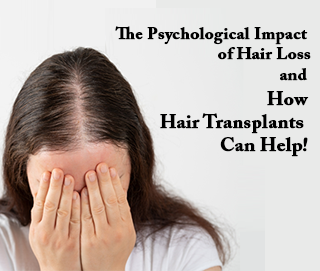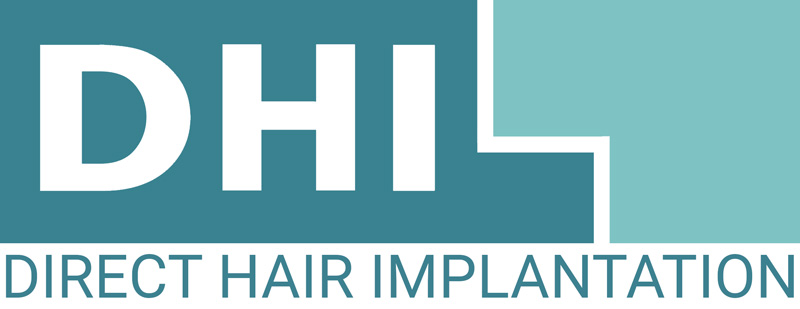Hair Loss and Its Psychological Toll: How Hair Transplants Offer Relief

Hair loss, a common and natural part of aging, affects millions worldwide. At the same time, it may seem like a superficial concern, but the emotional and psychological toll it takes on individuals should not be underestimated.
In this comprehensive exploration, we will delve into the profound psychological impact of balding and depression and the transformative potential of hair transplants as a solution.
The Emotional Toll of Hair Loss
For many, hair loss is an unwelcome reminder of aging and vulnerability, causing constant distress. The fear of going bald or experiencing thinning hair can create a persistent unease, leading to anxiety about one’s appearance.
Depression is an everyday companion of hair loss, as individuals may struggle with body image issues and social withdrawal. Reduced self-esteem and self-worth can erode confidence, affecting various aspects of life, including relationships and career opportunities.
Understanding the emotional toll of hair loss due to depression and anxiety is essential, as it highlights the importance of effective treatments like hair transplants. Addressing hair loss’s physical and emotional aspects can help individuals regain their self-confidence and overall well-being.
Hair loss can exact a heavy emotional toll on individuals, far beyond the physical aspect of losing hair. The psychological impact is profound, often leading to feelings of anxiety, depression, and a decline in self-esteem. Depression due to baldness and other psychological symptoms may manifest in varying degrees in different individuals. On-time understanding, diagnosis, and requisite interventions are vital to helping individuals not be depressed due to hair loss and lead a good quality of life.
The Link Between Self-Image and Hair
The link between self-image and hair is a profound and deeply ingrained one. Hair often symbolizes beauty, vitality, and identity, making it a significant component of how we perceive ourselves.
A full head of healthy hair is typically associated with youth, attractiveness, and confidence. When individuals experience hair loss or thinning, they can challenge these perceptions, leading to a decline in self-esteem and self-worth. They may feel less attractive and less confident in social and professional settings. They are more susceptible to being depressed due to hair loss and due to the fear of going bald, too.
The impact on self-image can extend to various aspects of life, influencing relationships, personal interactions, and even career choices. People may become more self-conscious and avoid social situations or events, leading to isolation and reduced quality of life.
Understanding the link between self-image and hair underscores the importance of effective hair restoration solutions like hair transplants. These treatments restore physical appearance and help individuals regain their self-confidence and positive self-image, ultimately enhancing their overall well-being.
Hair Transplants as a Solution
Hair transplants, a proven and effective method for restoring hair, can play a crucial role in reversing the psychological impact of hair loss and minimising the hazardous effects of depression due to baldness. This surgical procedure involves the extraction of hair follicles from donor areas and their transplantation into thinning or balding regions. Not only does it provide physical restoration, but it also addresses the emotional aspects of hair loss and hair loss due to depression and anxiety.
Restoring Self-Confidence with Hair Restoration Solutions
Hair restoration solutions, such as hair transplants, offer individuals the chance to regain self-confidence. Restoring a natural hairline and a fuller head of hair, these treatments help individuals feel more attractive, youthful, and comfortable in their skin.
The Psychological Benefits of Hair Restoration
Hair restoration, mainly through methods like hair transplants, offers many psychological benefits beyond physical transformation.
Here’s how it can positively impact individuals’ mental well-being:
1) Enhanced Self-Confidence: Regaining a full head of hair can significantly boost self-esteem and self-confidence. Individuals feel more attractive and comfortable in their skin, leading to a positive self-image.
2) Reduced Anxiety and Depression: Hair loss often triggers feelings of anxiety and depression. Effective hair restoration treatments alleviate these emotional burdens, allowing individuals to enjoy better mental health.
3) Improved Social Life: Increased self-confidence leads to a more active social life. People become more willing to engage in social activities, build relationships, and pursue opportunities they may have avoided due to hair loss.
4) Career Advancement: A boosted self-image can translate into improved career prospects. Individuals are more likely to project confidence in professional settings, potentially leading to better job opportunities and advancement.
5) Quality of Life: Hair restoration enhances overall quality of life. The mental and emotional relief of regaining hair allows individuals to lead happier, more fulfilling lives.
6) Positive Body Image: Individuals often experience a more positive body image with restored hair. They no longer feel defined or limited by their hair loss, which can lead to a healthier relationship with their appearance.
The psychological benefits of hair restoration are transformative. Beyond the physical improvements, these treatments empower individuals to feel confident, happy, and fulfilled, ultimately enriching their overall well-being and quality of life.
Consultation and Personalized Treatment Plans
Reputed hair restoration clinics prioritise the emotional well-being of their patients. A consultation with a specialist allows for a thorough assessment of the patient’s needs and the development of personalised treatment plans. This ensures that the chosen solution aligns with the patient’s expectations and desired outcomes.
Post-Transplant Emotional Well-Being
While the physical changes following a hair transplant are apparent, the emotional transformation is equally significant. Patients often feel happier, self-assured, and less anxious about their appearance. The positive effects extend beyond the mirror, improving their overall quality of life.
How the DHI Hair Transplant Solution Can Be the One-stop Solution
DHI’s Direct Hair Implantation (DHI) technique has revolutionised the hair restoration sphere. All the hair restoration procedures are administered end-to-end by the LHRTA-certified hair specialists and surgeons. Its minimally invasive approach reduces scarring and discomfort, ensuring a more comfortable patient experience. Pain-free, safe procedures with minimal downtime and 100% natural-looking hair are some of the assured benefits of the DHI Total Care System. With DHI’s precision, patients can expect natural-looking results that restore hair and revive their self-esteem and emotional well-being.
The psychological impact of hair loss is profound and should not be underestimated. Depression, anxiety, and a decline in self-esteem are familiar companions of hair loss. However, with advanced hair restoration solutions like DHI hair transplants, individuals can regain their hair, self-confidence, and emotional well-being. Embracing these innovative treatments can lead to a happier, more fulfilling life for those affected by hair loss.
